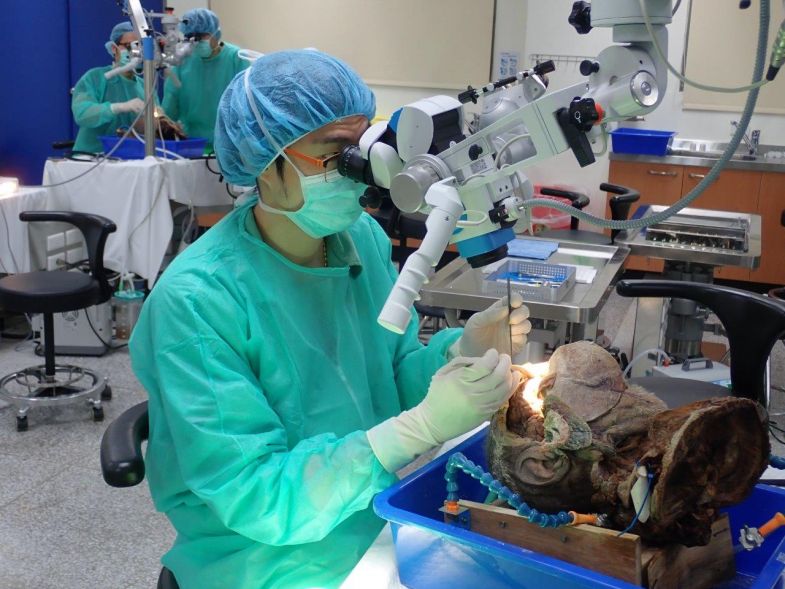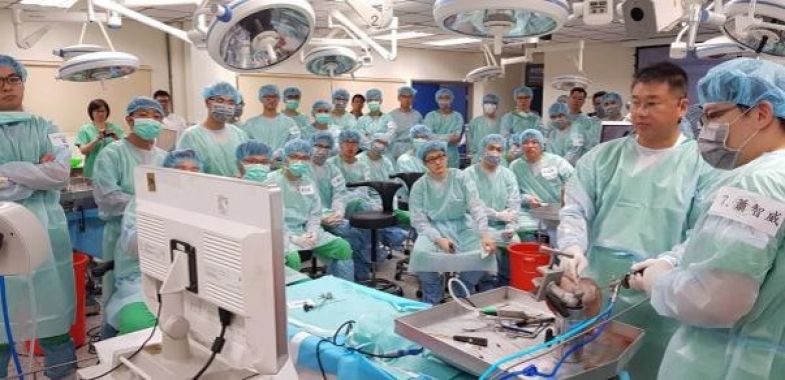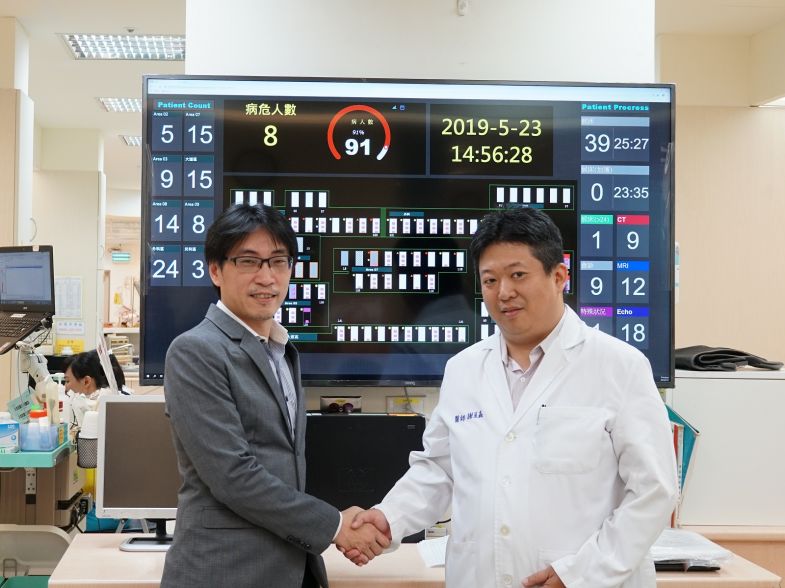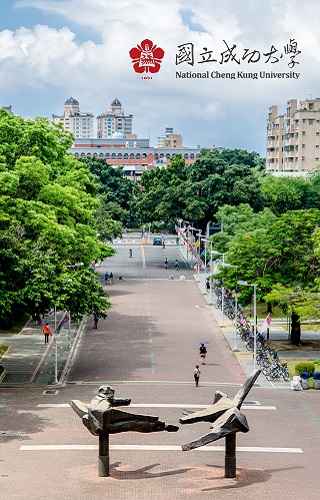The National Cheng Kung University College of Medicine – Taiwan’s leading research center for enterovirus, dengue fever, oncovirus, geriatric medicine and neurology – emphasises medical professionalism and humanism in its medical training. Its International Institute for Macromolecular Imaging and Research Alliance develops research and development professionals in translational medicine, with backgrounds in materials science, medical imaging, biophotonics, biomedical electronics and other medical technologies.
 |
 |
Geriatrics hospital
 By 2022, NCKU’s Medical Centre will build its first geriatrics hospital, which will introduce smart technology to create a “hospital without walls”. NCKU and many information communication technology companies have agreed to collaborate and use artificial intelligence, alongside the internet of things, to co-develop patient-centred medical and healthcare services. The hospital will have 440 beds, research and education facilities, and space for collaborative research with pharmaceutical and biotechnology companies. NCKU is gathering the resources necessary to develop new smart geriatric healthcare for Taiwan and the world.
By 2022, NCKU’s Medical Centre will build its first geriatrics hospital, which will introduce smart technology to create a “hospital without walls”. NCKU and many information communication technology companies have agreed to collaborate and use artificial intelligence, alongside the internet of things, to co-develop patient-centred medical and healthcare services. The hospital will have 440 beds, research and education facilities, and space for collaborative research with pharmaceutical and biotechnology companies. NCKU is gathering the resources necessary to develop new smart geriatric healthcare for Taiwan and the world.
AI companion robot
To improve the quality of human life, an interdisciplinary team led by Professor Jung-Hsien Chiang (AI Biomedical Research Center) in collaboration with tech company Asus, is focusing on designing and developing an AI companion robot for use with family doctor care teams, patients with diabetes and the elderly. The robot was first designed for use with children but, by using deep learning, adding events and seasonal information to the inference procedure, the team has successfully broadened the scope of applications in order to achieve a more user-friendly environment for elderly care users.
3D technology in medical education
The College of Medicine is taking the lead in Taiwan by integrating 3D technology, mixed and virtual reality for the purpose of setting up the Surgical Skills Development Center, which is intended to close the gap between traditional teaching, and clinical applications and curriculum. A gross anatomy room that combines basic and clinical medical science education will be located next to the centre. By teaching students how to meticulously operate delicate craniotomy drills, they will simultaneously learn respect for cadavers.
Developing AI fitness for elderly healthcare
Taiwan officially became an aged society in 2018, according to Yeh Ming Long, director of the NCKU Medical Device Innovation Center. With the advent of emerging smart technology, advanced diagnostic technology and an ageing society, smart healthcare will be the most important developing direction for the world in the future. The biomedical industrial innovation and smart healthcare technology that the NCKU Medical Device Innovation Center promotes combines expertise across different fields. The age-friendly, intelligent, health-promoting fitness system being developed integrates senior fitness assessment, an intelligent arm ergometer, an intelligent stationary bike, a keyless interface, interactive game guidance and a remote expert system. By using big data and AI, it provides a personalised intelligent fitness prescription for older people. The remote intelligent services are not limited to remote medical care, the AI big data also provide an innovative method of remote health promotion for the elderly. This means that intelligent senior healthcare is no longer out of reach, enabling patients to move towards a happy life in old age.
Intelligent emergency on-site management system
 NCKU Hospital and electronics firm Qisda have developed an intelligent emergency on-site management system that accelerates emergency operation processes and improves patients’ medical experience. The hospital has also introduced an e-paper bedside card in the intensive care unit (ICU). Such AI technology is helping to organise emergency and intensive care unit information, to improve medical efficiency, to assist patients in the emergency and ICU wards and ensure they receive proper care. At the same time, it is improving medical emergency treatment efficiency and the doctor-patient relationship, creating a win-win intelligent medical environment.
NCKU Hospital and electronics firm Qisda have developed an intelligent emergency on-site management system that accelerates emergency operation processes and improves patients’ medical experience. The hospital has also introduced an e-paper bedside card in the intensive care unit (ICU). Such AI technology is helping to organise emergency and intensive care unit information, to improve medical efficiency, to assist patients in the emergency and ICU wards and ensure they receive proper care. At the same time, it is improving medical emergency treatment efficiency and the doctor-patient relationship, creating a win-win intelligent medical environment.














